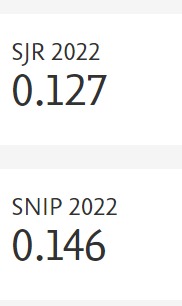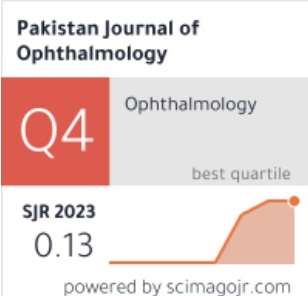Clinical outcomes of Lateral Tarsal Strip Procedure for the correction of entropion and ectropion
Doi:10.36351/pjo.v41i1.1720
DOI:
https://doi.org/10.36351/pjo.v41i1.1720Abstract
Purpose: Evaluating the clinical outcomes of Lateral Tarsal Strip Procedure for the correction of entropion and ectropion.
Study Design: Interventional case series.
Place and Duration of Study: Mayo Hospital Lahore, from January 2018 to March 2023.
Methods: Lateral Tarsal Strip Procedure was performed for the correction of Lower lid malposition in 43 patients for entropion or ectropion. Complete ocular assessment was done including palpebral fissure height, amount of inward/outward turning of lids, abnormalities of lashes and pre-existing tear film abnormality. Patients with previous eye surgery were excluded. We collected data regarding surgical outcomes and satisfaction of patients.
Results: Forty-three patients were included in this study. There were 30 men and 13 women in the age range of 59 to 82 years (mean 72.2±4.9 years). There were 28 right and 15 left lower eyelids. Surgical success with anatomical correction of Involutional ectropion was achieved in all patients. Distribution of type of lid abnormality is shown in Table 1. There were no perioperative or postoperative complications. After initial 100% results, only two out of forty-three eyelids (4.6%) had recurrence of involutional ectropion after 4 and 6 months.
Conclusion: LateralTarsalStrip is a simple and effective approach in achieving correction for entropion/ectropion.
Downloads
Published
How to Cite
Issue
Section
License
Copyright (c) 2024 Farah Huma, Zahid Kamal, Muhammad Rizwan Khan, Waqar Ahmed, Bahadur Iftikhar

This work is licensed under a Creative Commons Attribution-NonCommercial 4.0 International License.






